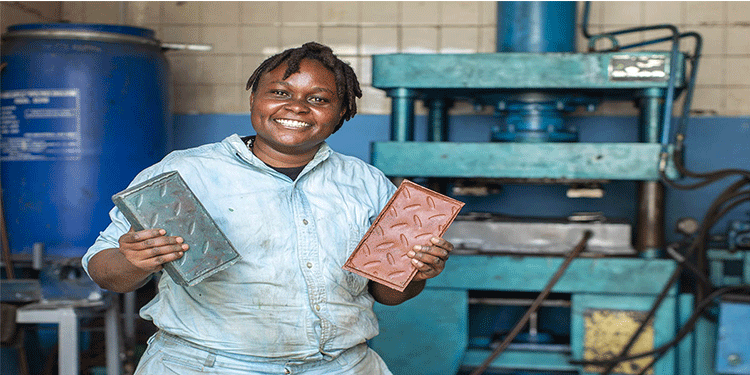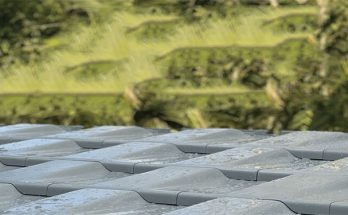
In Kenya, plastic garbage has always been a major concern, but really, where is plastic waste not a problem? Instead of storing their garbage locally, some nations even merely sell it to other nations for storage. Let us return to Kenya, where the majority of roads are still unpaved, exacerbating environmental problems. Gjenge Makers, a Nairobi-based business, is spearheading the effort to address this issue by providing an affordable and long-lasting solution.
Gjenge Makers is led by materials engineer Nzambi Matee, who started the company in 2017 after quitting her work as a data analyst to follow her passion for coming up with creative solutions to the problem of plastic waste. Determined to come up with a workable answer, she began experimenting in a small lab with combinations of plastic and sand. She created bricks from recycled plastic debris and sand after many hours of research and experimenting.
These plastic bricks are unique in that they are reasonably priced in addition to being quite durable. These plastic pavers are an appealing option for a variety of building projects because they are substantially less expensive than typical concrete alternatives. Pallets of these plastic pavers can actually cost up to $150, thus they are 25% less expensive than other options.
The project by Gjenge Makers has had a tremendous impact. Their paving stones have been used in streets, schools, and residential buildings, improving the communities in which they are installed. Every day, Gjenge Makers efficiently recycles over 500 kg of plastic waste, with a production capability of 500-1000 bricks each day.
Beyond just cutting waste, Gjenge Makers’ creative solution has the potential to contribute to a more sustainable future. They’re not only making Kenyan roads better by turning plastic garbage into a useful resource, but they’re also leading by example in other areas. One brick at a time, Gjenge Makers is paving the road for a greener and more ecologically conscious construction sector with their passion and inventiveness.
In conclusion, there are possibilities for a variety of applications with our selection of concrete blocks. Light-duty blocks, which have a carrying capacity of up to 100 N/mm2 or 82 metric tons, combine strength and lightness, making them ideal for residential compounds. Commercial buildings benefit greatly from medium-duty blocks, which have a greater load carrying capacity of up to 140 N/mm2 (115 metric tonnes). For heavy-duty applications, the heavy blocks are the ideal option. They can support loads of up to 200 N/mm2, or 164 metric tons, and are intended for use on roadways and in locations with heavy machinery. These blocks are twice as sturdy as regular concrete blocks and come in a variety of colors.



